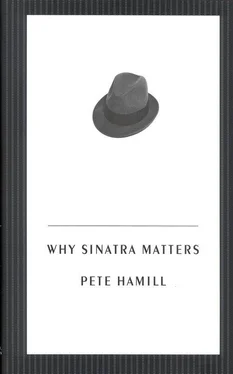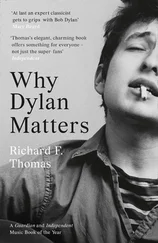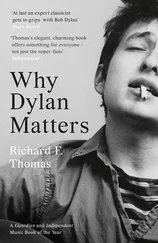After an impressive engagement at the Mosque Theater in Newark, he was booked into the Paramount as a special added attraction with the Benny Goodman band. This wasn’t Goodman’s idea; he already featured Peggy Lee as vocalist and Jess Stacy on piano. He and his band were the stars, and Sinatra was only a kind of dessert when Goodman’s show was over. But Sinatra wanted desperately to play the Paramount as a solo act, and his instincts were correct. The date was December 30, 1942. He walked out, his suit baggy on his bony frame, more than a little scared, wearing a bow tie that Nancy had made a size larger to hide his Adam’s apple. He started singing, “The bells are ringing, for me and my gal. …” The rest of the words were lost in the screaming.

OH, GOD, FRANK SINATRA COULD BE THE SWEETEST, MOST CHARMING MAN IN THE WORLD WHEN HE WAS IN THE MOOD.
— AVA GARDNER
I AM VERY MUCH SURPRISED WHAT I HAVE BEEN READING IN THE NEWSPAPERS BETWEEN YOU AND YOUR DARLING WIFE. REMEMBER YOU HAVE A DECENT WIFE AND CHILDREN. YOU SHOULD BE VERY HAPPY. REGARDS TO ALL.
— TELEGRAM TO FRANK SINATRA FROM WILLIE (WILLIE MOORE) MORETTI, 1949
ONE OF SINATRA’S most mysterious achievements was also the one that allowed him to endure for more than half a century after Harry James heard him in the Rustic Cabin. It was the nature of his audience. Sinatra started out with far more female than male fans. He ended up with more male fans. This happens to very few pop singers.
On the simplest level it was connected to the times themselves. For millions of women during the war, Sinatra was the romantic voice of the American homefront. He was singing to Rosie the Riveter, the symbolic woman who had walked into a war plant and found employment that was ordinarily reserved for men. She was more than a self-reliant patriot or an earner of a day’s pay for a day’s work. She was something new, and her newness began to transcend the work itself; Rosie the Riveter was soon asserting some of the prerogatives of men — smoking cigarettes, drinking when she wanted to drink, right up against the bar, sleeping around if she wanted to sleep around, or choosing her own erotic fantasies. The music of Frank Sinatra wasn’t used only by men to seduce women; during the conflict that Studs Terkel called “the good war,” some women used that music, with its expression of sheer need, to seduce the available men. Yes, Sinatra was singing to all those girls whose boyfriends were fighting in Anzio or Guadalcanal; some maintained a patriotic virginity; others went their own ways. At the same time, he was singing to those women, of whatever age, who had never managed to find a boyfriend at all and for whom Saturday night truly was the loneliest night of the week.
In his life Sinatra’s sudden, immense fame worked as a kind of aphrodisiac. There were then, as there would be during the long reign of rock and roll, groupies who would sleep with famous men to add them to scoreboards; the names were like the downed Messerschmitts or Zeroes painted by pilots on the sides of P-51s during the war. But there were also many less calculating females suddenly knocking on Frank Sinatra’s door. He certainly wasn’t so perfectly handsome that he seemed unattainable; he looked to some young women that he’d be as happy to meet them as they would be to meet him.
But the Sinatra fantasy was also safe because its consummation seemed so unlikely. The big reason was that he was also married, was living after June 1944 in Toluca Lake, California, with his wife, Nancy, his daughter, Nancy, and after September 28, 1944, his son. The boy was named Franklin (for President Roosevelt) Emanuel (for his agent, Manie Sachs) Sinatra. He wasn’t really a “junior” but would be cursed with the label of Frank Jr. for his entire life. In the wartime years Sinatra played by the rules of the publicity game; if that was what was required to become a gigantic star, then that was what he would do. And so he allowed fan magazines to photograph him with his family, first in Hasbrouck Heights, New Jersey (wearing a Crosby-style yacht cap, smoking a pipe, posing in the bar of his finished basement), and then in the grander circumstances of Los Angeles. His wife, Nancy, was always there, smiling in an amused way; in public she played the part of the older, wiser woman who was the guarantor of the innocence of the girls who wanted her husband.
This bow to the conventional pieties became part of the double image that Sinatra was conjuring: the traditionalist, with house and family, and the potential lover, consumed by loneliness and unrequited love. As a singer, he was almost always the lover. In American music of the time, Bing Crosby was the reigning husband.
He and Crosby met in 1943, liked each other, worked together on radio shows and patriotic rallies. But Crosby successfully presented a reassuring, almost paternal image to the audience, one whose wild oats had long ago been sown, and kept his personal life — and whatever private demons he might have had — safely behind his own walls. With Sinatra, public and private seemed to merge, and the result was a disturbing ambiguity. Yes, he had a wife and children and a house; but in the music he professed a corrosive emptiness, an almost grieving personal unhappiness. The risk attached to his kind of singing was that it promised authenticity of emotion instead of its blithe dismissal or the empty technique of the virtuoso. His singing demanded to be felt, not admired. It always revealed more than it concealed. Unlike the Crosby persona, Sinatra could not laugh off his losses. That transparency was essential to his music. But it didn’t make real life easier for him.
While Sinatra’s career was taking off after 1943, with hit records, radio shows, and movie contracts, rumors about his private life started finding their way into gossip columns. He was spotted with this starlet or that woman; on the road he seldom slept alone. Or so the rumors said. Some were certainly true. “You’re a young guy,” he said once, in another context. “You don’t say three Hail Marys and pray for sleep.” Sex, of course, was also about power. Young women could use sex to impose fleeting power over the famous young man; Sinatra, the new kid in town, could sleep with Hollywood movie stars to prove to himself that he had true power and would never end up back in Hoboken. But he also was learning that even after the most casual feasts, someone presents you with the bill.
Very early he came up against the terrible scrutiny that comes with fame — and he didn’t like it at all. It was one thing for an unknown Sinatra to live in Hoboken and have a fling in Englewood; nobody would ever know, except the principals. It was different for a star. Someone was always watching. Years later Sinatra was still struggling with the velvet prison of fame.
“It just changes everything,” he said. “You can’t go to a beach. You can’t walk into a movie. You can’t stand on a corner and eat a hot dog. You want the fame but, baby, you pay a price.”
During the war, rumors of Sinatra’s carousing didn’t matter to the young women in the audience. If Sinatra was indeed doing what he was accused of, the female audience wasn’t surprised. The subtext of his music suggested that he didn’t feel complete in his personal life; in a complicated way, these young fans also wanted the same chance that the other women seemed to be having. Most didn’t identify with Nancy; they envied her, even honored her, but they were more like the other women, desiring a night with Frank Sinatra with no illusions about living happily ever after. Everywhere on earth, wartime is a bad time for traditional values. When Sinatra did go home to Nancy, there were often angry confrontations, abrupt denials or dismissals, slammed doors. Sinatra didn’t handle any of this well. It was one thing to create romantic fantasies for strangers; it was quite another to deal directly with a humiliated wife. The emerging truth was quite unremarkable: like many other young men, Frank Sinatra was a good father and a poor husband.
Читать дальше













